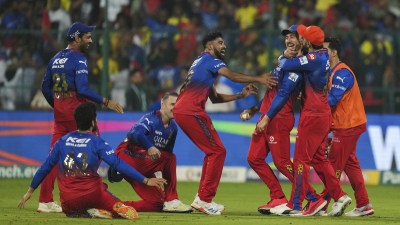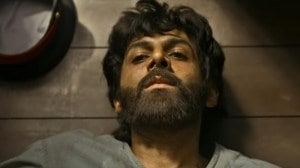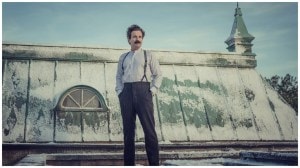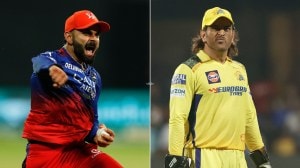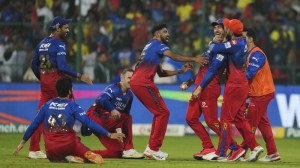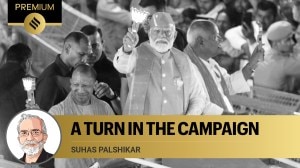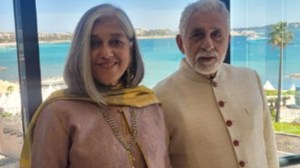- India
- International
From Pather Panchali and Lagaan to All We Imagine as Light: India stars at Cannes
From its inception to recent recognition and collaborations, Indian cinema has a deep relationship with the Cannes Film Festival.
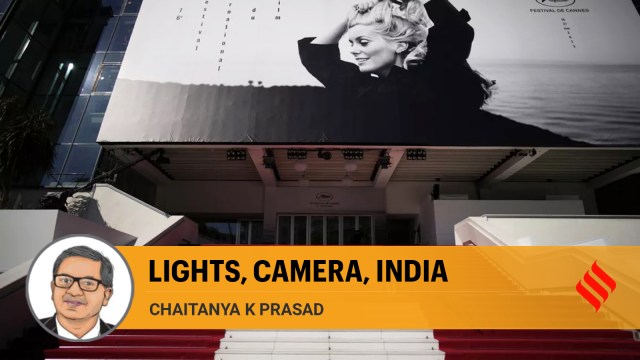 Since the 1950s, Indian cinema has adorned the Cannes red carpet.
Since the 1950s, Indian cinema has adorned the Cannes red carpet.For Indians, the Cannes Film Festival, once a far-removed event, has become familiar terrain. In 1946, Neecha Nagar by Chetan Anand won the Grand Prix, making it the first Indian film to gain this recognition. Once the Cannes gates were opened for India, there was no looking back.
Since its inception, the audience and jury at Cannes have embraced Indian cinema for its depth and artistry. With the Film Heritage Foundation presenting, for the third consecutive year at Cannes, Shyam Benegal’s Manthan and the recent nomination of Payal Kapadia’s All We Imagine as Light, India’s standing in the global cinematic landscape is being reaffirmed.
Since the 1950s, Indian cinema has adorned the Cannes red carpet. Satyajit Ray’s Pather Panchali earned the Best Human Document award in 1956. But India’s legacy at Cannes extends beyond individual triumphs. From Satyajit Ray’s golden era to contemporary avant-garde narratives, Indian filmmakers consistently showcase innovation and diversity. Notable amongst these are Mrinal Sen’s Kharij, which won the Special Jury Prize in 1983, Mira Nair’s Salaam Bombay! which was awarded the Caméra d’Or in 1988, and Shaji N Karun’s Piravi, which received the Caméra d’Or — Mention Spéciale in 1989. In 1999, Murali Nair’s Marana Simhasanam (Throne of Death) added to India’s success at Cannes, too.
Indian cinema, much like Indian cuisine, offers a tapestry of flavours, from heartwarming dramas to exhilarating spectacles and spicy twists, drawing international audiences with its kaleidoscope of cultures and emotions. The Indian Pavilion at Cannes has been a symbol and story of the country’s evolving film industry. It has become one of the hubs of the festival where stakeholders discuss and debate the Indian filmmaking landscape.
Previously, a diverse array of Indian films — from Ritesh Batra’s poignant The Lunchbox to Sanjay Leela Bhansali’s opulent Devdas — set India apart from its global contemporaries at the festival. R Madhavan’s Rocketry: The Nambi Effect and Ashutosh Gowariker’s epic, Lagaan, have cultivated a deeper appreciation of Indian cinema’s diversity in filmmaking.

The 66th and 75th editions of the Festival were significant for India, coinciding with monumental milestones in the nation’s cultural and historical journey. To commemorate 100 years of Indian cinema, India was the Official Guest Country at the 66th edition. This reinforced its soft power and overarching influence on Cannes. The Shehenshah of Hindi cinema, Amitabh Bachchan, and his The Great Gatsby co-star Leonardo DiCaprio declared the official kick-off of the 66th edition. Bachchan addressing the global audience in his mother tongue Hindi was a proud moment. The first Incredible India Exhibition was also organised to promote India as a filming destination, a joint venture by the Ministry of Tourism and the Ministry of Information and Broadcasting. For the first time, the stakeholders at Cannes got a bird’s eye view of the potential of filmmaking in India.
India also celebrated 75 years of diplomatic ties with France, which coincided with the 75th anniversary of the Cannes. India was felicitated as the Official Country of Honour at the 2022 Cannes Marché du Film. On the occasion, Prime Minister Narendra Modi reinforced the potential of India to become a global content hub.
The Ministry of Information and Broadcasting has played a critical role in enhancing the soft power reach of India at Cannes. It actively manages India’s outreach efforts, ensuring a strong presence for the country’s film industry. Interestingly, the International Film Festival of India (IFFI) seems to be a lucky charm for foreign films vying for international acclaim. Several films that have been screened at IFFI have gone on to win Oscars, including American Beauty (1999) and Life is Beautiful (1997), Life of Pi (2012), Parasite (2019), and The Power of The Dog (2021). Additionally, notable films presented at Cannes are shown as a special package at IFFI, proving a distinct eye for great stories. Whether a springboard for Indian films or a launchpad for Oscar contenders, both Cannes and IFFI have established a jugalbandi in weaving together the best of cinema across the globe.
The Indian film fraternity has also been a part of the esteemed Cannes jury, enriching the prestigious event with their expertise. Filmmaker Mrinal Sen paved the way in 1982. Renowned directors like Mira Nair and Shekhar Kapur offered unique perspectives, while actresses including Aishwarya Rai Bachchan, Sharmila Tagore, Vidya Balan, and most recently, Deepika Padukone, contributed to the selection of top international films at the 75th edition.
According to a 2024 Media and Entertainment report, ‘#Reinvent’, published by Ernst & Young, the Indian film industry’s global influence is undeniable, with 339 Indian films released across 38 countries in 2023 alone. Indian productions have notably surpassed the $100 million mark at the international box office, propelled by increasing collaborations with international studios. Indian cinema’s presence at prestigious film festivals underscores its artistic merit and global appeal while streaming platforms have facilitated widespread distribution. With diverse genres and languages, including regional cinema, catering to varied audiences, Indian talent is also making waves in Hollywood and beyond.
Further, film tourism, driven by iconic locations featured in Indian films, contributes significantly to India’s tourism sector. These factors highlight the industry’s dynamic evolution and enduring impact on the world stage. India’s soft power will always remain a critical aspect of world cinema being showcased at Cannes even in its 77th edition. The journey has been an expression of the creativity and excellence built into India’s creative DNA.
The writer is former additional DG, DFF and festival director, IFFI. Views are personal. Inputs from Zoya Ahmad and Vaishnavie Srinivasan
40 Years Ago
EXPRESS OPINION
More Explained
May 19: Latest News
- 01
- 02
- 03
- 04
- 05



